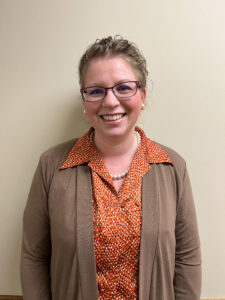About Diabetes
Diabetes is a condition in which the body does not produce or properly use insulin, a hormone that is needed to convert sugar starches, and other food into energy. There are two main types of diabetes. Type 1 and Type 2. Another type is gestational diabetes.
Type 1 is most common in children and young adults and occurs when the pancreas has stopped making insulin. The exact cause has not been determined.
Type 2 diabetes occurs when the pancreas is making less insulin, the insulin being produced is not working as efficiently as it should, or the liver may be releasing stored sugar when the body doesn’t need it. Although Type 2 diabetes has traditionally been diagnosed in adults over 30, it also is being diagnosed in children and adolescents. Lifestyle risk includes obesity and inactivity.
Gestational Diabetes is abnormal blood sugar that occurs only during pregnancy. Gestational diabetes is more likely to occur in women who are over-weight, have a family history of diabetes, have had a baby who weighted more than nine pounds, or who have had gestational diabetes in the past.
The classic symptoms of diabetes include:
- A general feeling of fatigue or tiredness
- Increased thirst and urination
- Blurriness of vision
- Slow healing cuts
- Tingling or numbness of the extremities
- Sometimes a weight change
Our Diabetic Educator

Mindy Simpson, B.S.N., R.N., CDCES
Certifications
The Mercy Health Network – North Iowa diabetes education is recognized for its quality by the State of Iowa and by the American Diabetes Association. The ADA’s Recognition assures that the educational programs meet the national standards for diabetes self-management.
The network program includes diabetes educators (nurse and dietitian) at each of the affiliated hospitals located in Algona, Bancroft, Britt, Cresco, Emmetsburg, Hampton, Iowa Falls, New Hampton, and Osage. All educators meet state and national standards to provide instruction. Many of the educators also are recognized as Certified Diabetes Care and Education Specialists or CDCES.
The title of CDCES is obtained through the National Certification Board for Diabetes Education. The process demonstrates that rigorous educating experience and examination criteria have been met. It also provides recognition for knowledge in this specialty.
Outpatient Diabaetes Education
Outpatient diabetes education is provided through individual or group classes and presented by a certified diabetes educator, who specializes in diabetes management.
Our trained diabetic educators will provide an overview of diabetes management and teach blood sugar monitoring.
Address issues relating to:
- High and low blood sugars
- Care during illness
- Preventing long-term complications
- Foot care
- Psychological aspects
- Motivate clients to plan behavior changes to maintain the best control of their disease
- Share resources available on local, state, and nation levels
Educators will also help patients start insulin and adjust to target blood sugar goals – per insulin syringes – pens or insulin pump as per provider orders.
Nutrition Educator
KRHC also has a nutrition educator. The nutrition educator will focus on:
- How foods affect blood sugars
- Determining food portions
- Reading labels, easting out choices
- Healthy cooking techniques
- Adjusting meal plans to activities and illness

Allison Kruger, Registered Dietitian
Location
Getting To Your Appointment
Park in the main hospital parking lot located at the front of the hospital and use the main hospital entrance. Registration will take place in the hospital lobby and waiting rooms are provided here. A volunteer may escort you to the diabetes/ dietitian’s office.
Take Control of Your Diabetes, One Step at a Time.
Get help from our Diabetic Educator today.
Hours
M-F 8am-5pm
